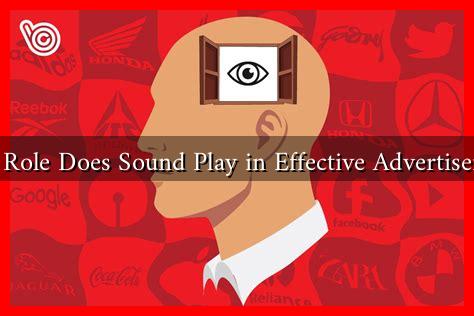-
Table of Contents
What Role Does Sound Play in Effective Advertisements
In the world of advertising, visuals often take center stage, but sound plays an equally crucial role in capturing attention and conveying messages. From jingles to voiceovers, the auditory elements of an advertisement can significantly influence consumer behavior and brand perception. This article explores the multifaceted role of sound in effective advertisements, supported by research, examples, and case studies.
The Psychological Impact of Sound
Sound has a profound psychological impact on human emotions and decision-making processes. Research indicates that auditory stimuli can evoke feelings and memories, making them powerful tools in advertising. Here are some key psychological effects of sound:
- Emotional Resonance: Music and sound effects can evoke specific emotions, enhancing the overall message of the advertisement.
- Memory Recall: Catchy jingles or memorable sound bites can improve brand recall, making it easier for consumers to remember a product.
- Attention Capture: Unique sounds can grab attention in a crowded media landscape, making an advertisement stand out.
Sound Elements in Advertising
Effective advertisements often incorporate various sound elements to create a cohesive and engaging experience. These elements include:
- Music: Background music sets the tone and mood of the advertisement. For instance, upbeat music can create a sense of excitement, while softer melodies may evoke nostalgia.
- Voiceovers: A well-delivered voiceover can convey trust and authority, guiding the audience through the advertisement’s message.
- Sound Effects: These can enhance the visual elements, making the advertisement more immersive. For example, the sound of a soda can opening can trigger thirst and desire.
Case Studies: Successful Use of Sound in Advertising
Several brands have effectively utilized sound to enhance their advertising campaigns. Here are a few notable examples:
- McDonald’s: The fast-food giant’s iconic jingle, “I’m Lovin’ It,” has become synonymous with the brand. The catchy tune not only enhances brand recall but also creates a positive emotional association with the brand.
- Apple: Apple’s advertisements often feature minimalist soundscapes that emphasize the product’s sleek design and functionality. The use of subtle sound effects enhances the user experience, making the product feel more desirable.
- Old Spice: The “Old Spice Guy” campaign effectively used humor and a distinctive voiceover to create a memorable character. The combination of witty dialogue and engaging sound effects contributed to the campaign’s virality.
Statistics Supporting the Importance of Sound
Numerous studies highlight the significance of sound in advertising effectiveness. Here are some compelling statistics:
- According to a study by Nielsen, ads with sound are 23% more effective than those without.
- A survey by the Audio Branding Academy found that 96% of consumers believe sound influences their perception of a brand.
- Research from the University of Southern California revealed that music can increase the likelihood of purchasing a product by 30%.
Conclusion: The Power of Sound in Advertising
In conclusion, sound plays a pivotal role in effective advertisements by enhancing emotional resonance, improving memory recall, and capturing attention. Brands that strategically incorporate sound elements—such as music, voiceovers, and sound effects—can create more engaging and memorable advertising experiences. As the advertising landscape continues to evolve, understanding the psychological impact of sound will be essential for marketers aiming to connect with consumers on a deeper level.
For further reading on the impact of sound in advertising, you can explore resources from the Audio Branding Academy.

